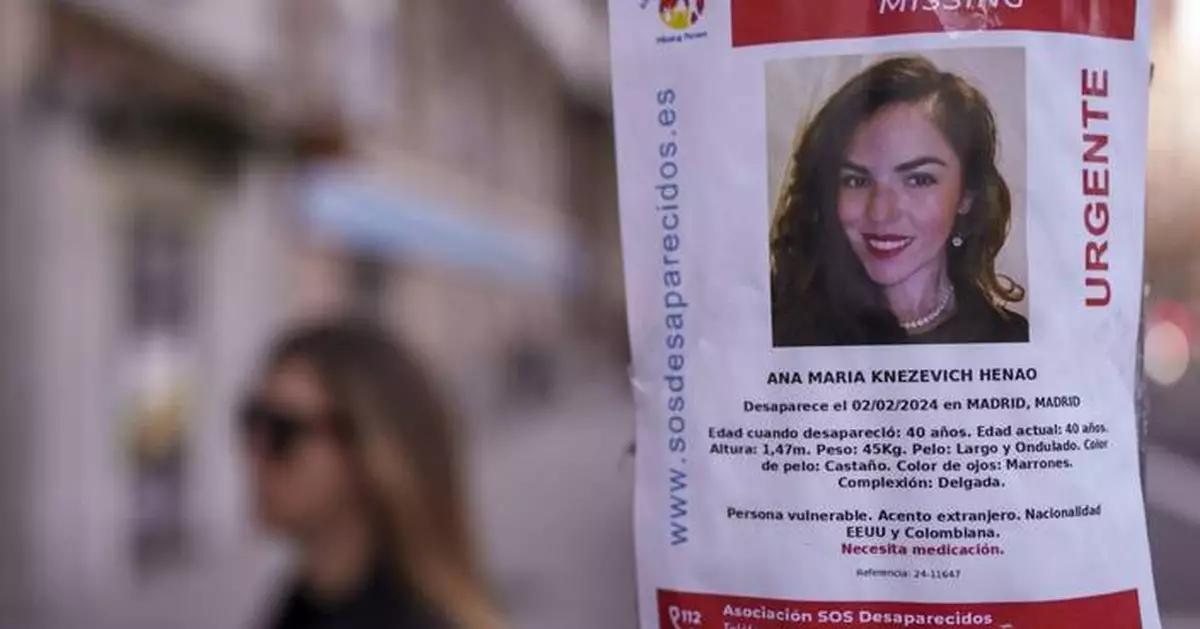FORT LAUDERDALE, Fla. (AP) — A Florida businessman charged with kidnapping and killing his estranged wife in Spain was found dead from apparent suicide Monday morning in a South Florida federal prison, his defense attorney said.
David Knezevich, 37, was awaiting trial at the Federal Detention Center in Miami. He was charged last year with kidnapping and killing 40-year-old Ana Hedao Knezevich, who went missing in a case that has drawn international media attention.
Knezevich’s attorney, Jayne Weintraub, said she learned that he was found dead in his cell but didn't offer any details about how he died.
“The defense team is devastated to learn of this news," Weintraub said. "We sincerely hope that an appropriate and prompt investigation will be conducted.”
The Federal Bureau of Prisons confirmed that Knezevich was found unresponsive in his cell shortly after 8 a.m. Responding employees initiated life-saving measures before emergency medical services arrived and took over, officials said. EMS personnel eventually pronounced Knezevich dead. The FBI and the U.S. Marshals Service were notified.
Ana Knezevich disappeared from her Madrid apartment in February 2024, five weeks after she had moved there. Her body still hasn't been found.
A man in a motorcycle helmet was seen sneaking into her apartment building and disabling a security camera, and was later seen wheeling out a suitcase.
Prosecutors say they have strong evidence Knezevich was the man in the helmet. They say he flew to Turkey from Miami six days before Ana’s disappearance, then immediately traveled to his native Serbia, where he rented a car. Security video captured Knezevich at a Madrid hardware store the same day his wife disappeared, and his rental car had been driven 4,800 miles (7,700 kilometers) when it was returned five weeks later, officials said.
The couple was in the middle of a contentious divorce while fighting over millions of dollars in properties, according to prosecutors. They had been married for 13 years.
Weintraub has said the split was amicable and the financial arrangements were being worked out.
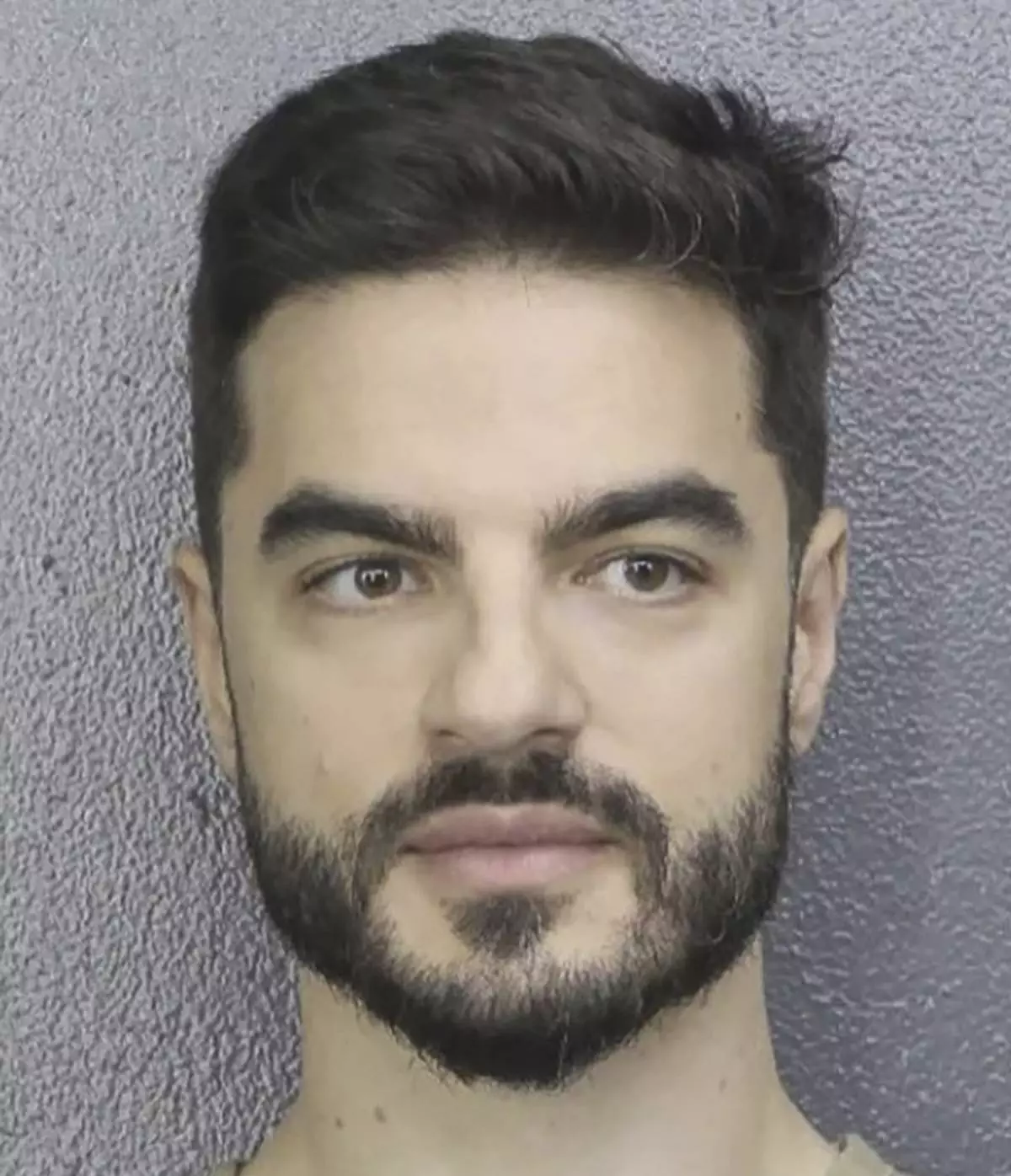
FILE - This undated photo provided by the U.S. Attorney's Office Miami shows David Knezevich, a Florida man charged with his wife's disappearance from her Spain apartment. (U.S. Attorney's Office Miami via AP, File)
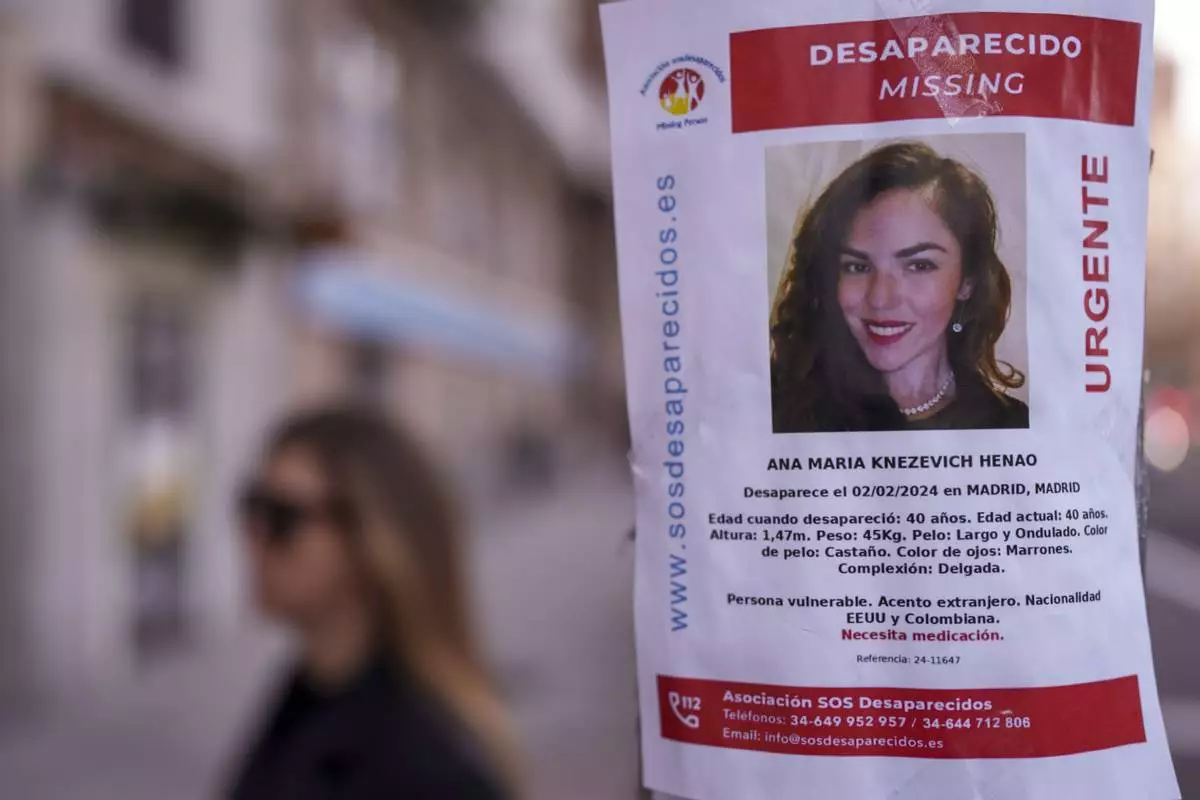
FILE - A missing poster for Colombian-born American Ana Maria Knezevich Henao is displayed on a streetlight in Madrid, Spain, Feb. 16, 2024. (AP Photo/Manu Fernandez, File)
DUBAI, United Arab Emirates (AP) — U.S. President Donald Trump said Iran wants to negotiate with Washington after his threat to strike the Islamic Republic over its bloody crackdown on protesters, a move coming as activists said Monday the death toll in the nationwide demonstrations rose to at least 544.
Iran had no immediate reaction to the news, which came after the foreign minister of Oman — long an interlocutor between Washington and Tehran — traveled to Iran this weekend. It also remains unclear just what Iran could promise, particularly as Trump has set strict demands over its nuclear program and its ballistic missile arsenal, which Tehran insists is crucial for its national defense.
Meanwhile Monday, Iran called for pro-government demonstrators to head to the streets in support of the theocracy, a show of force after days of protests directly challenging the rule of 86-year-old Supreme Leader Ayatollah Ali Khamenei. Iranian state television aired chants from the crowd, who shouted “Death to America!” and “Death to Israel!”
Trump and his national security team have been weighing a range of potential responses against Iran including cyberattacks and direct strikes by the U.S. or Israel, according to two people familiar with internal White House discussions who were not authorized to comment publicly and spoke on condition of anonymity.
“The military is looking at it, and we’re looking at some very strong options,” Trump told reporters on Air Force One on Sunday night. Asked about Iran’s threats of retaliation, he said: “If they do that, we will hit them at levels that they’ve never been hit before.”
Trump said that his administration was in talks to set up a meeting with Tehran, but cautioned that he may have to act first as reports of the death toll in Iran mount and the government continues to arrest protesters.
“I think they’re tired of being beat up by the United States,” Trump said. “Iran wants to negotiate.”
He added: “The meeting is being set up, but we may have to act because of what’s happening before the meeting. But a meeting is being set up. Iran called, they want to negotiate.”
Iran through country's parliamentary speaker warned Sunday that the U.S. military and Israel would be “legitimate targets” if America uses force to protect demonstrators.
More than 10,600 people also have been detained over the two weeks of protests, said the U.S.-based Human Rights Activists News Agency, which has been accurate in previous unrest in recent years and gave the death toll. It relies on supporters in Iran crosschecking information. It said 496 of the dead were protesters and 48 were with security forces.
With the internet down in Iran and phone lines cut off, gauging the demonstrations from abroad has grown more difficult. The Associated Press has been unable to independently assess the toll. Iran’s government has not offered overall casualty figures.
Those abroad fear the information blackout is emboldening hard-liners within Iran’s security services to launch a bloody crackdown. Protesters flooded the streets in the country’s capital and its second-largest city on Saturday night into Sunday morning. Online videos purported to show more demonstrations Sunday night into Monday, with a Tehran official acknowledging them in state media.
In Tehran, a witness told the AP that the streets of the capital empty at the sunset call to prayers each night. By the Isha, or nighttime prayer, the streets are deserted.
Part of that stems from the fear of getting caught in the crackdown. Police sent the public a text message that warned: “Given the presence of terrorist groups and armed individuals in some gatherings last night and their plans to cause death, and the firm decision to not tolerate any appeasement and to deal decisively with the rioters, families are strongly advised to take care of their youth and teenagers.”
Another text, which claimed to come from the intelligence arm of the paramilitary Revolutionary Guard, also directly warned people not to take part in demonstrations.
“Dear parents, in view of the enemy’s plan to increase the level of naked violence and the decision to kill people, ... refrain from being on the streets and gathering in places involved in violence, and inform your children about the consequences of cooperating with terrorist mercenaries, which is an example of treason against the country,” the text warned.
The witness spoke to the AP on condition of anonymity due to the ongoing crackdown.
The demonstrations began Dec. 28 over the collapse of the Iranian rial currency, which trades at over 1.4 million to $1, as the country’s economy is squeezed by international sanctions in part levied over its nuclear program. The protests intensified and grew into calls directly challenging Iran’s theocracy.
Nikhinson reported from aboard Air Force One.
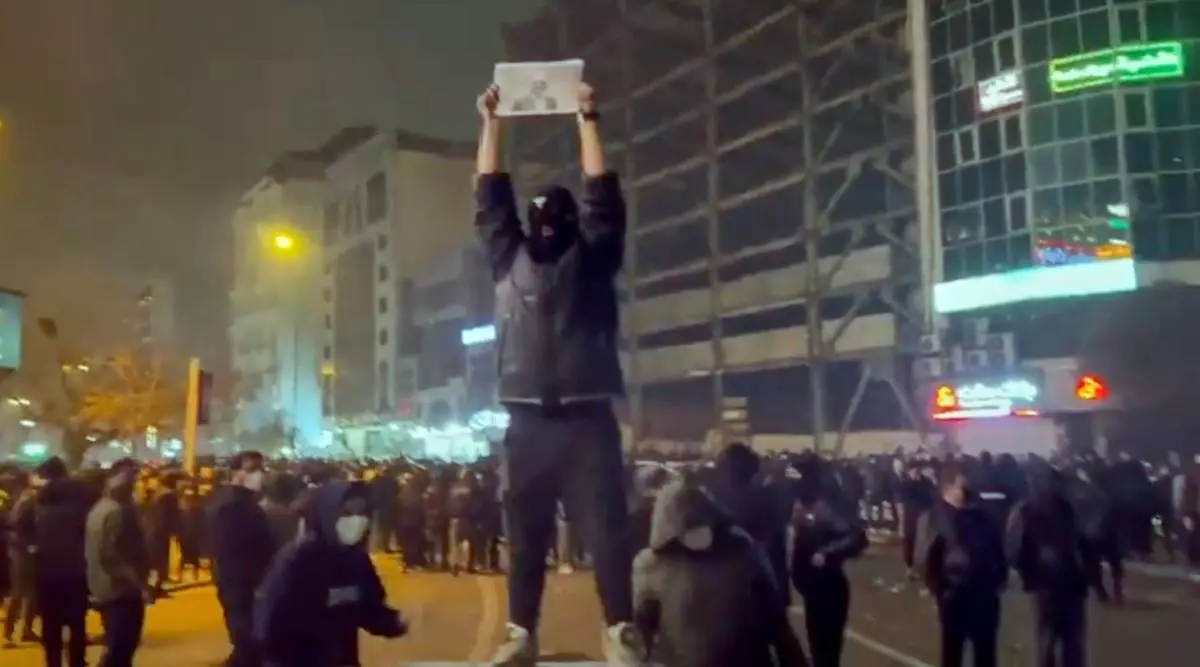
In this frame grab from video obtained by the AP outside Iran, a masked demonstrator holds a picture of Iran's Crown Prince Reza Pahlavi during a protest in Tehran, Iran, Friday, January. 9, 2026. (UGC via AP)
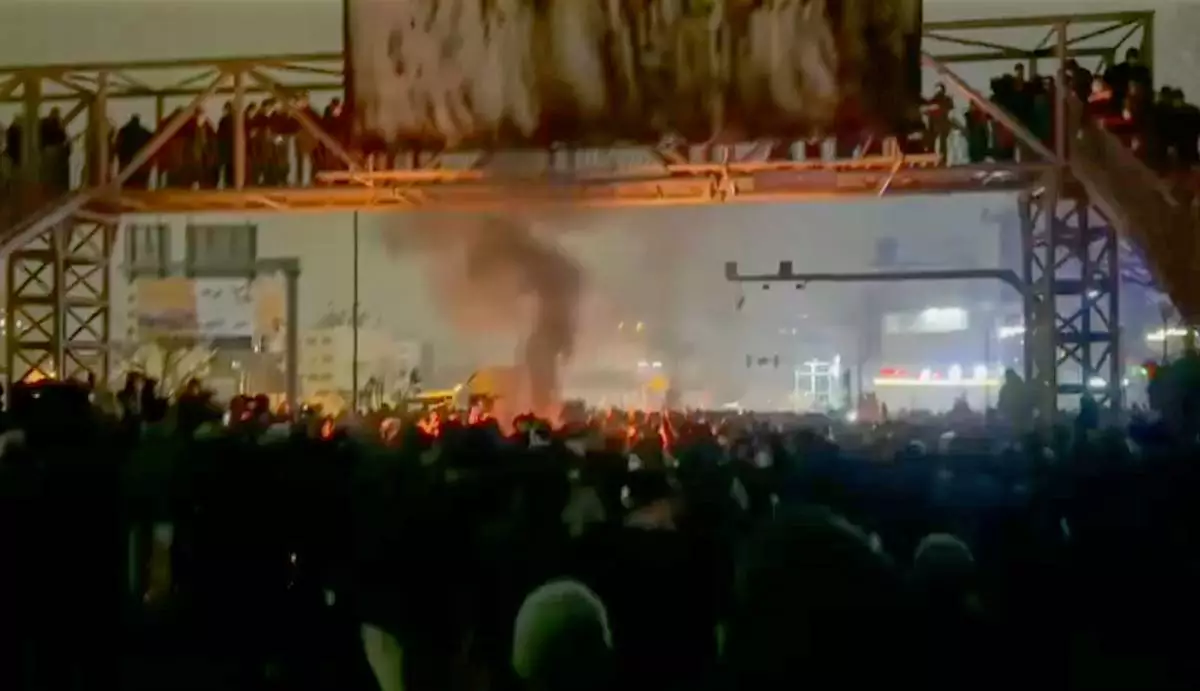
In this frame grab from footage circulating on social media from Iran shows protesters taking to the streets despite an intensifying crackdown as the Islamic Republic remains cut off from the rest of the world in Tehran, Iran, Friday, Jan. 9, 2026.(UGC via AP)
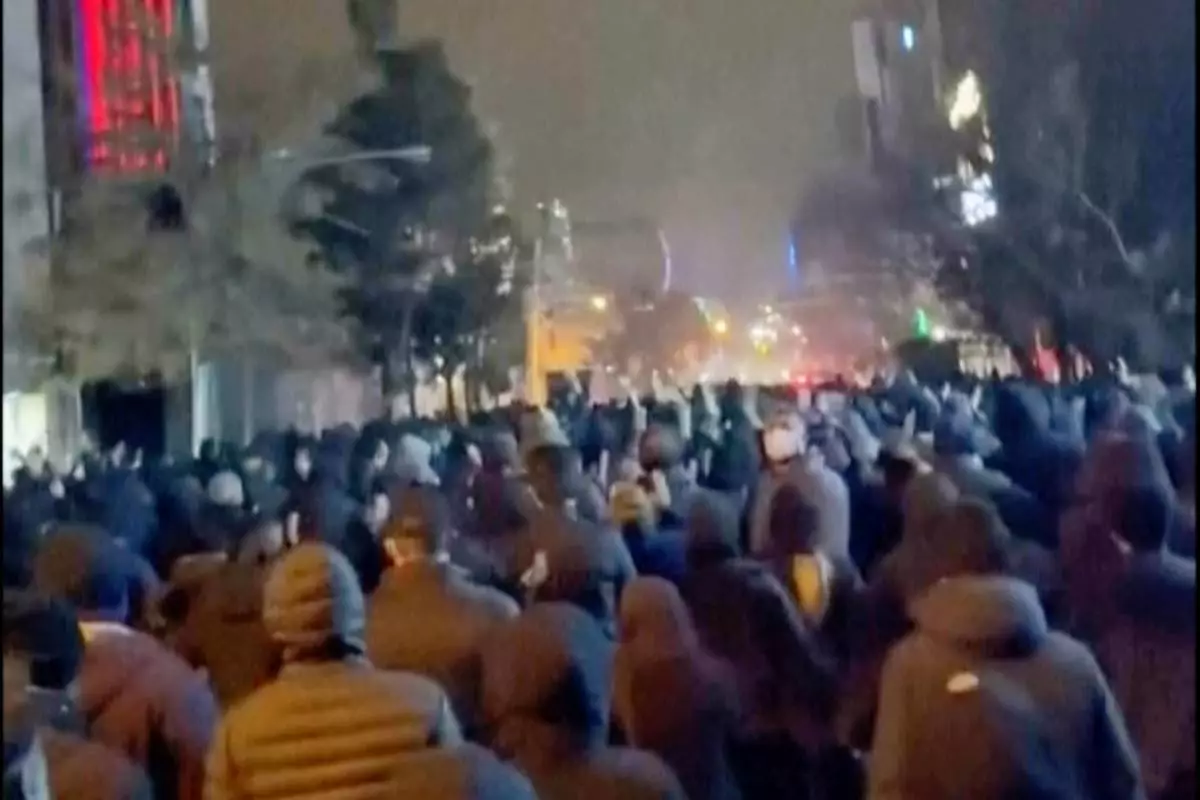
In this frame grab from footage circulating on social media from Iran showed protesters once again taking to the streets of Tehran despite an intensifying crackdown as the Islamic Republic remains cut off from the rest of the world in Tehran, Iran, Saturday Jan. 10, 2026. (UGC via AP)




